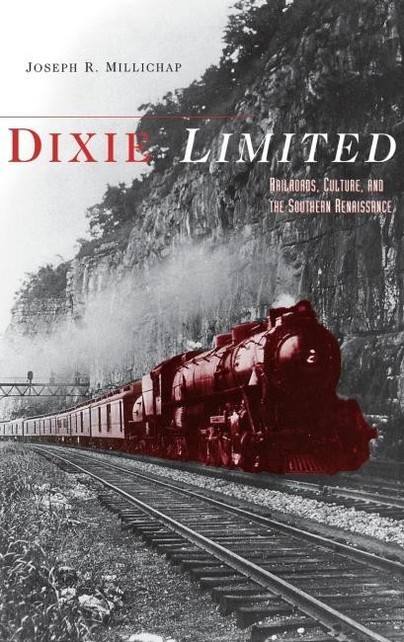Dixie Limited (Hardback)
Railroads, Culture, and the Southern Renaissance
Imprint: University Press of Kentucky
Pages: 160
ISBN: 9780813122342
Published: 14th March 2002
Script Academic & Professional
Pages: 160
ISBN: 9780813122342
Published: 14th March 2002
Script Academic & Professional
This book will be reprinted and your order will be released in due course.
You'll be £27.00 closer to your next £10.00 credit when you purchase Dixie Limited. What's this?
+£4.99 UK Delivery or free UK delivery if order is over £40
(click here for international delivery rates)
Need a currency converter? Check XE.com for live rates
(click here for international delivery rates)
Need a currency converter? Check XE.com for live rates
In the South, railroads have two meanings: they are an economic force that can sustain a town and they are a metaphor for the process of southern industrialization. Recognizing this duality, Joseph Millichap's Dixie Limited is a detailed reading of the complex and often ambivalent relationships among technology, culture, and literature that railroads represent in selected writers and works of the Southern Renaissance. Tackling such Southern Renaissance giants as Thomas Wolfe, Eudora Welty, Robert Penn Warren, and William Faulkner, Millichap mingles traditional American and Southern studies -- in their emphases on literary appreciation and evaluation in terms of national and regional concerns -- with contemporary cultural meaning in terms of gender, race, and class.
Millichap juxtaposes Faulkner's semi-autobiographical families with Wolfe's fiction, which represents changing attitudes toward the "Southern Other." Faulkner's later fiction is compared to that of Warren, Welty, and Ellison, and Warren's later poetry moves toward the contemporary post-Southernism of Dave Smith. These disparate examples suggest the subject of the final chapter -- the continuing search for post-Southern patterns of persistence and change that reiterate, reject, and perhaps reconfigure the Southern Renaissance. As we enter the twenty-first century, that we recall how much the twentieth-century South was shaped by railroads built in the nineteenth century. It is also important that we recognize how much our future will be determined by the technological and cultural tracks we lay.
Other titles in University Press of Kentucky...















